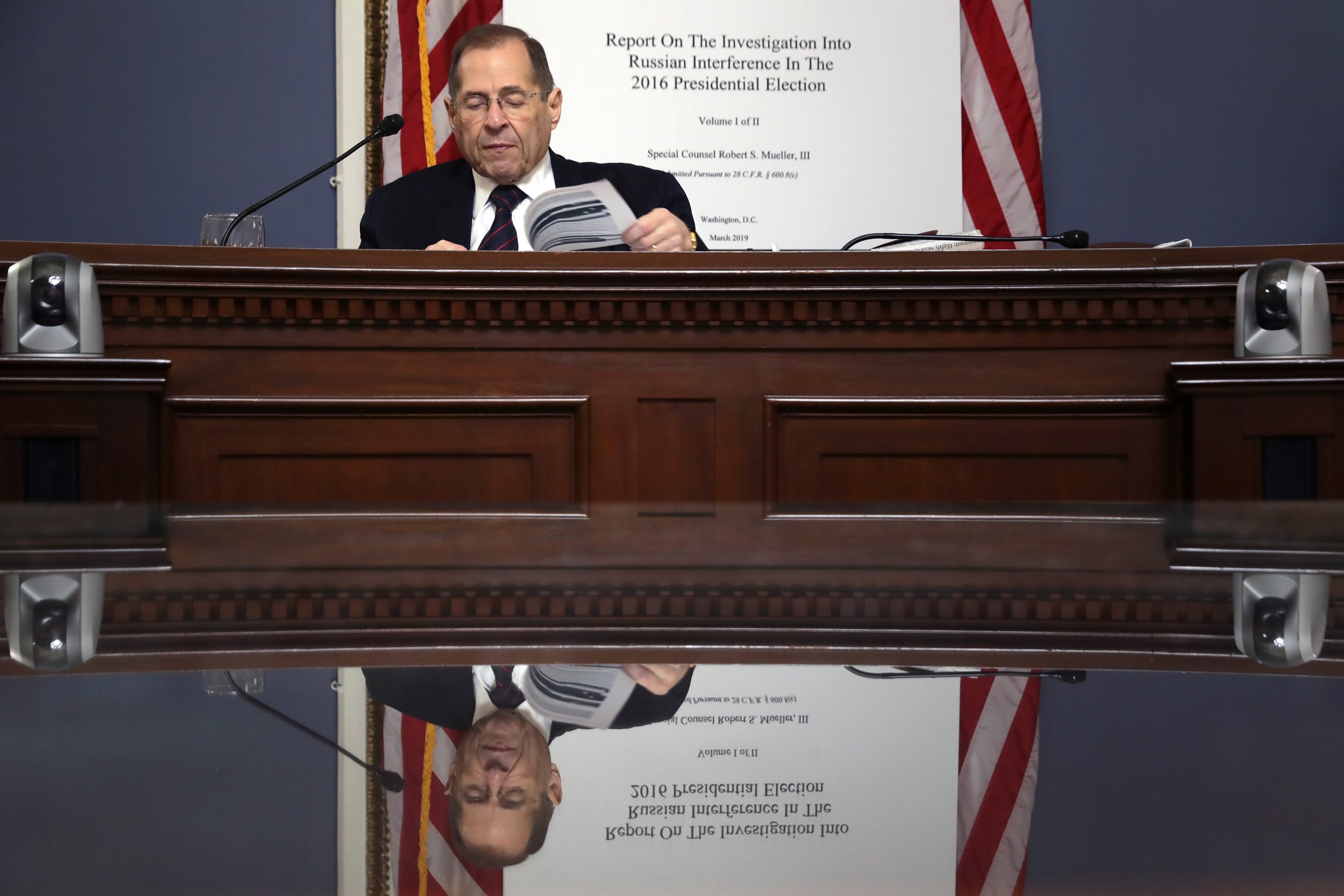
Even though the White House has thumbed its nose at House Democrats, refusing to comply with multiple requests for documents and testimony, a top Democrat on Thursday reiterated the House's intent to press forward with its investigations, while accusing the Trump administration of failing to "comprehend the gravity" of the information revealed in special counsel Robert Mueller's report.
In a letter to White House counsel Pat Cipollone, House Judiciary Committee Chairman Jerrold Nadler said Thursday that his committee would not cease its pursuit of documents and testimony from 81 current and former government officials, the White House and business entities associated with President Donald Trump, a pursuit that began in March.
On the heels of the committee voting to hold Attorney General William Barr in contempt of Congress for not supplying the unredacted Mueller report and its underlying evidence, the back-and-forth exchanges between Nadler and Cipollone this week only intensified the standoff between Congress and the White House.
"Your failure to comprehend the gravity of the Special Counsel's findings is astounding and dangerous," Nadler told Cipollone in his letter. "[T]he Committee has the right—indeed the duty under the Constitution—to investigate these and other related circumstances… Both the Russian threat to our elections and the President's threat to the rule of law continue."
A major concern for Democrats outlined in the special counsel's report was several instances in which Trump tried to thwart or hinder the investigation, which included unsuccessful attempts to have Mueller removed.
On Wednesday, Cipollone said Nadler and House Democrats wanted an "unauthorized do-over" of the Russia investigation and lacked "legislative purpose," accusing them of having the sole intent of "harassing and seeking to embarrass political opponents" with their numerous congressional investigations.
"[T]he appropriate course is for the Committee to discontinue the inquiry," Cipollone told Nadler in a letter. "Unfortunately, it appears that you have already decided to press ahead with a duplicative investigation, including by issuing subpoenas, to replow the same ground the Special Counsel has already covered. I ask that you reconsider that approach."
The White House's lack of cooperation was just one instance of its most recent effort to stonewall House Democrats at every turn. In recent weeks, Trump said his administration was "fighting all the subpoenas," a promise his officials have so far kept by refusing to hand over the full Mueller report and Trump's taxes, among other things.
Nadler responded by threatening to use Congress' inherent contempt power, which hasn't been used in more than 80 years, to impose "very large" fines on individuals who are found to be in contempt. In his letter, the New York Democrat rebuked Cipollone's assertion that Congress lacked the oversight power to demand such information from the White House.
"[Y]our sweeping claim that the Committee has no right to seek documents and information related to the issues investigated by the Special Counsel is unprecedent and unsupported by law, history and practice," Nadler said. "The Administration's position that the president cannot be indicted by the Department of Justice, and that Congress cannot investigate him, effectively places the president above the law."
Nadler indicated that negotiations between the administration and the Judiciary Committee had completely broken down. On the eve of the committee's vote to hold Barr in contempt last week, negotiations with the Justice Department to obtain the unredacted Mueller report fell apart, and it appeared that talks with the White House did too.
He requested that the White House "resume negotiations to resolve this dispute, which were abruptly broken off by the Department of Justice when it rejected the committee's most recent counter-offer." He proposed for Judiciary Committee staff and White House staff to have a meeting.
Nadler's previous counter-offer regarding the Mueller report was rather than having the Department of Justice provide the full report and underlying evidence, it could hand over only the underlying evidence that was "specifically referenced" in the report and agree to help the Judiciary Committee seek a judge's approval to view the secret grand jury material that is protected under the law.
Cipollone, in his letter asking Nadler to end his inquiry, offered the chairman a small olive branch, stating he was willing to "work with the Committee through the constitutionally mandated accommodation process to provide the Committee with materials it can properly request."
Uncommon Knowledge
Newsweek is committed to challenging conventional wisdom and finding connections in the search for common ground.
Newsweek is committed to challenging conventional wisdom and finding connections in the search for common ground.
About the writer
Ramsey Touchberry is a Washington Correspondent for Newsweek based in the nation's capital, where he regularly covers Congress.
Prior to ... Read more
To read how Newsweek uses AI as a newsroom tool, Click here.








